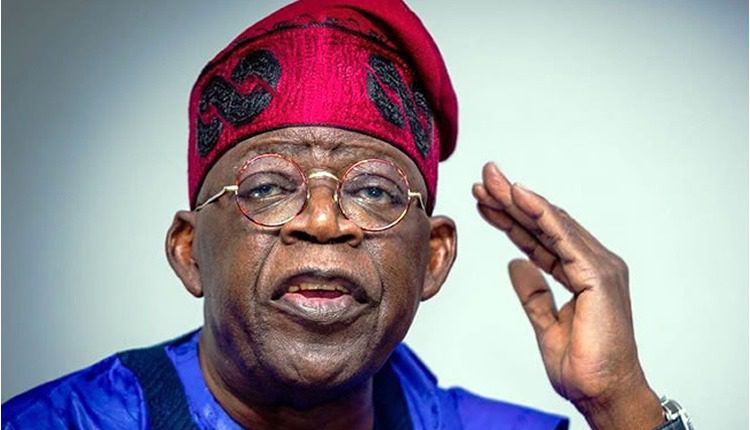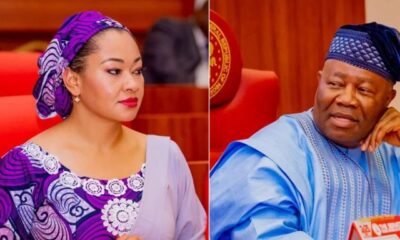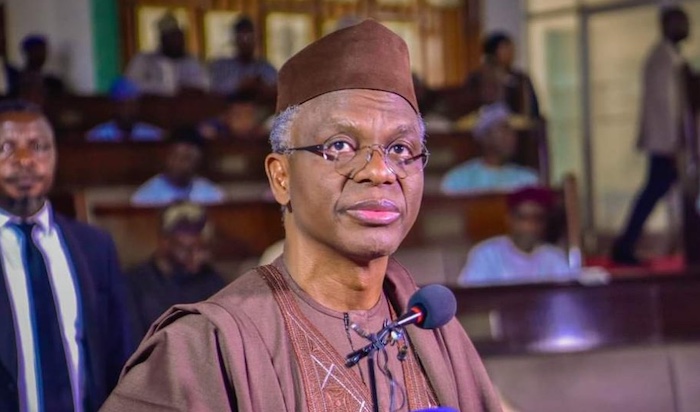The Presidency on Sunday defended President Bola Tinubu’s current state visit to Saint Lucia, describing it as an important diplomatic and cultural mission.
It stated that the visit is renewing Nigeria’s ancestral and strategic relationship with the Caribbean nation and the broader Caribbean Community bloc.
In a statement issued by the Special Adviser to the President on Information and Strategy, Bayo Onanuga, the Presidency said, “In the wake of some Nigerians’ misguided, mischievous, and uninformed comments regarding President Bola Tinubu’s historic state visit to Saint Lucia, it is necessary to clarify the purpose of the visit.”
The clarification followed remarks from Labour Party’s 2023 presidential candidate, Mr Peter Obi, and others.
Obi, in a post on X (formerly Twitter) on Saturday, said he was “struggling with my senses to understand what is happening to governance in this country.”
He expressed concern about the President’s trip to the Caribbean nation, especially following what he called a holiday in Lagos.
“I didn’t want to believe that anybody in the position of authority, more so the President… would contemplate a leisure trip at this time,” he added.
Responding, the Presidency stated, “First, from the perspective of the Government of Saint Lucia, the visit by the Nigerian leader paves the way for the rekindling of our ancestral bonds, igniting a new era of diplomatic, cultural, and economic possibilities between our nations.”
Onanuga noted that Saint Lucia, like several Caribbean countries, shares strong ancestral ties with West Africa, particularly Nigeria.
“In the mid-19th century, a wave of immigrants from present-day Nigeria arrived in Saint Lucia, bringing cultural and religious practices that persist today,” he said.
The statement continued, “Citizens of Saint Lucia are excited that President Tinubu has chosen to visit the island. They long to strengthen their bonds with African nations with which they share ancestral links.”
The Presidency described the visit as part of Nigeria’s South-South cooperation and its Four D’s foreign policy agenda: Democracy, Development, Diaspora, and Demography.
“Saint Lucia is the headquarters of the Organisation of Eastern Caribbean States and the gateway to the 15 CARICOM member states. The CARICOM states have a combined GDP of over $130bn, a significant figure in South-South trade discourse.”
Highlighting past ties, Onanuga mentioned the contributions of Sir Darnley Alexander, a Saint Lucian who served as Chief Justice of Nigeria from 1975 to 1979.
“Sir Darnley Alexander, a Saint Lucian-born jurist who died on February 10, 1989, served as Chief Justice of Nigeria from 1975 to 1979. He first came to Nigeria in 1957, recruited as a legal draftsman by the Western Regional Government of Chief Obafemi Awolowo,” the statement said.
He later held key legal roles including Director of Public Prosecutions in 1958, Solicitor General and Permanent Secretary of the Western Regional Ministry of Justice in 1960, judge in the Lagos High Court in 1964, and Chief Judge of the defunct South Eastern State in 1969, before becoming Chief Justice of Nigeria.
Other Saint Lucians mentioned include Neville Skeete, who helped design the Central Bank of Nigeria headquarters, and Sir Darnley’s son Michael, who served as a frontline medical officer during Nigeria’s civil war.
On the cultural front, the Presidency noted that the visit aligns with the African Union’s Sixth Region agenda, which recognises the African diaspora as a development partner.
“Nigeria actively fosters cultural exchange through collaboration in education, culture, and heritage preservation. Our cultural exports, including Afrobeats, Nollywood, and literature, are already making a significant impact on Saint Lucia and the wider Caribbean.”
It added, “The Gros Islet Street Party is arguably one of Saint Lucia’s most famous cultural events. It has been held every Friday for over 50 years. On the Friday before President Tinubu’s arrival, Afrobeats and Nigerian music dominated the airwaves, a testament to Nigeria’s growing soft power and cultural footprint.”
The statement emphasised Saint Lucia’s political stability and democratic alignment with Nigeria.
“Saint Lucia is a stable parliamentary democracy, making it a natural ally for Nigeria, which has enjoyed 26 years of uninterrupted democratic governance.”
During Tinubu’s arrival, a Saint Lucian commentator reportedly referred to him as a “fighter for democracy.”
On Nigeria’s demographics, the statement said, “Nigeria is projected to become the third most populous country in the world by 2050. President Tinubu has consistently emphasised that Nigeria’s youthful population is a driver of economic transformation via education, industrialisation, and innovation.”
Part of Tinubu’s itinerary includes a visit to the Sir Arthur Lewis Community College to strengthen educational ties.
Also in the delegation are members of the Nigerian Technical Aid Corps who are providing professional services in ACP countries.
“This assistance is delivered through the deployment of Nigerian professionals to recipient countries to address specific needs,” Onanuga explained.
The statement mentioned that Saint Lucia’s Prime Minister will host a reception for the Nigerian community, offering them the opportunity to meet with the President.
“This event is a unique opportunity for the Nigerian community to interact with their President and discuss matters of mutual interest, further strengthening the ties between the two nations.”
Saint Lucia, which gained independence in 1979, has hosted fewer than 10 official state visits. The last visit by an African leader was by President Nelson Mandela in 1998 during the 19th CARICOM Heads of Government Summit.
“Therefore, President Tinubu’s 2025 visit, 27 years later, is a historic diplomatic milestone,” the statement said.
It also revealed, “President Tinubu will address a special joint session of Saint Lucia’s bi-cameral Parliament at the Sandals Grande Saint Lucian Conference Hall, named after former US President Bill Clinton,” Onanuga said.
The Presidency concluded by stressing the purpose of the visit.
“President Tinubu’s visit is not a vacation, as misrepresented by critics, but a diplomatic and cultural outreach that advances Nigeria’s interests and deepens its global partnerships.”

 BIG STORY3 days ago
BIG STORY3 days ago
 BIG STORY4 days ago
BIG STORY4 days ago
 BIG STORY2 days ago
BIG STORY2 days ago
 BIG STORY4 days ago
BIG STORY4 days ago
 BIG STORY3 days ago
BIG STORY3 days ago
 BIG STORY4 days ago
BIG STORY4 days ago
 BIG STORY4 days ago
BIG STORY4 days ago
 BIG STORY2 days ago
BIG STORY2 days ago
























